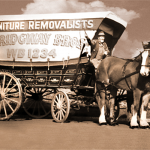Mid sized businesses should look at budget positives
First 5000 members should look at how they can take advantage of handouts announced by the Treasurer Wayne Swan in last night’s (8 May) Federal Budget.
Deloitte Private Tax partner David Pring said that although the government decided not to reduce the company tax from 30 per cent to 29 per cent, it is not all doom and gloom.
“We are in uncertain times the government has provided a lot of cash benefits to the small and medium income level,” he said. “That could stimulate spending and businesses need to think of how they can take advantage of it.”
The decision to dumping the cuts, which would have seen the company tax rate fall from 30% to 29% from July 2012 for businesses with less than $2 million in revenue, and for all businesses in July 2013, will save the government just under $4.8 billion over the next four years.
The government will compensate for the decision not to drop company tax rates with the introduction of carry-back rules which will allow companies to carry back up to $1 million of losses incurred in the 2013 year against profits in the 2012 year. In the 2014 year $1 million of losses can be carried back to either the 2012 or 2013 year.
Pring said he believes these measures are positive for private companies but expressed concerns that the measures would not provide benefit to companies until the end of 2013.
“The carry back rules won’t benefit till the end of 2013-2014 and they will only apply to a small group of companies,” he said.
“The carry back rules will provide a max of $300,000, which means that smaller companies get a bigger relative boost but it is only going to be companies that made profits in 2012 and losses in 2013 that are going to benefit. This won’t get them the cash that they need now in difficult times, they will have to wait.”
Pring also noted that the government will be putting more resources to the tax office to assist them in regard to their compliance.
“They are going to spend more time dealing with the tax office and that is an administrative burden on mid sized businesses.
“The other thing that members need to be mindful of is what will be the impact of carbon tax on their business – they won’t be playing carbon tax – but they need to be aware of the impact on their energy use, electricity prices and transport costs.
“They need to be aware of what they will have to pass on to their customers and look at measure to improve their energy efficiency.”
Pring added that First 5000 members should look out for further corporate tax changes which he believes are likely to come from th Business Tax Working Group.

Helen Hull is the editor of First 5000, the leading network for mid-sized businesses in Australia.






